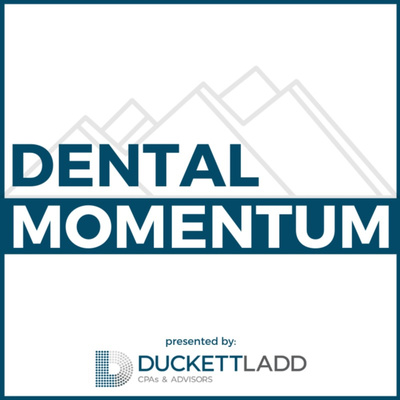Why Dental Practice Tax Services are Crucial
Managing a dental practice is rewarding but involves significant financial challenges. From tax return preparation to payroll tax compliance, navigating dental practice tax services can feel overwhelming.
If you’re looking for quick insights, here are some key points on why dental practice tax services are essential:
- Minimize tax liability through strategic planning
- Ensure compliance with IRS and state requirements
- Improve cash flow through optimized financial management
- Prevent financial fraud with forensic accounting
Sophisticated financial management is key to flourishing in the dental industry. As your dedicated partner, Duckett Ladd can help you steer these complexities, freeing you to focus on your primary mission—caring for your patients.
Understanding Dental Practice Tax Services
Navigating the complexities of dental practice tax services can be daunting, but with the right strategies, you can save money and stay compliant with regulations. Let’s break down the essentials:
Tax Planning Strategies
Tax planning is crucial for minimizing your tax liability. By proactively planning throughout the year, you can take advantage of various tax credits and deductions specific to dental practices.
For example, owning a dental practice opens up opportunities for advanced tax-reduction strategies. Utilizing trusts and asset transfer strategies can significantly lower your tax burden.
Case Study: One of our clients saved over $20,000 annually by implementing a strategic tax plan that included equipment depreciation and patient freebies as deductions.
Tax Return Preparation
Filing your tax returns correctly is vital to avoid penalties and audits. Dental practices have unique filing requirements at both the IRS and state levels.
The IRS requires dental practices to comply with various regulations, including income tax, self-employment tax, and sales tax for certain materials. Misunderstanding these liabilities can lead to underpayment or overpayment, both of which are costly.
Fact: The IRS has different federal tax rates ranging from 10–37%, depending on your income bracket.
Payroll Tax Compliance
Managing payroll tax compliance is another critical aspect. Payroll taxes include Social Security and Medicare taxes, which are mandatory for all employers.
Duckett Ladd offers cloud-based payroll solutions that handle employee direct deposit, paperless reporting, and a secure employee portal. This ensures that your payroll processes are compliant with IRS requirements and saves you time.
By understanding and implementing these tax services, you can focus more on delivering quality dental care and less on financial worries.
Next, let’s dig into Financial Management for Dental Practices to see how you can further optimize your practice’s financial health.
Financial Management for Dental Practices
Running a dental practice involves more than just providing excellent patient care. Financial management is crucial for long-term success. Here’s how you can streamline your financial processes:
Bookkeeping Automation
Automation tools like QuickBooks Online allow real-time access to your books, providing complete clarity and control. This means you can focus more on your patients and less on financial paperwork.
Pro Tip: Automating your bookkeeping can also help in detecting and preventing fraud. Regular updates and real-time monitoring make it easier to spot discrepancies.
Cash-Flow Management
Don’t go month to month blindly not knowing your practice’s cash-flow. Reliable cash-flow projections and management help you make informed decisions.
Key Questions to consider:
- Can you afford another staff member?
- Is it time to get a bigger office space?
Knowing where you stand financially allows you to make decisions daily, weekly, monthly, and annually. This proactive approach can help you avoid financial pitfalls and seize growth opportunities.
Fact: Practices with reliable cash-flow management are more likely to succeed and grow.
Payroll Solutions
Payroll is a basic component of owning your business and tends to be one of the biggest headaches.
Engage Advisors offers a cloud-based payroll solution that includes:
- Employee direct deposit
- Paperless reporting
- A secure employee portal
This ensures that your payroll processes are compliant with IRS requirements and saves you time. Plus, with features like direct deposit and paperless reporting, you can streamline your payroll operations and reduce administrative burdens.
Stat: Practices using cloud-based payroll solutions see a significant reduction in payroll errors and compliance issues.
By automating bookkeeping, managing cash-flow effectively, and utilizing cloud-based payroll solutions, you can ensure your dental practice runs smoothly and efficiently.
Next, let’s explore Advanced Tax Strategies for Dental Practices to see how you can further optimize your tax planning and reduce your tax burden.
Advanced Tax Strategies for Dental Practices
When it comes to dental practice tax services, advanced tax strategies can make a significant difference in your financial health. Let’s explore two key areas: utilizing trusts and asset transfers, and maximizing equipment and tools deductions.
Utilizing Trusts and Asset Transfers
Many dentists overlook the power of trusts and asset transfers for tax reduction. These strategies can help you keep more of your hard-earned money.
Trusts: Setting up a trust can provide tax benefits and protect your assets. For instance, an irrevocable trust can remove assets from your taxable estate, potentially saving you a substantial amount in estate taxes.
Asset Transfers: Transferring assets strategically can also reduce your tax burden. By gifting assets to family members in lower tax brackets, you can minimize overall family tax liability. However, be sure to comply with IRS gift tax rules to avoid penalties.
Example: Dr. Smith set up a trust and transferred some of his practice’s assets to it. This move reduced his estate’s taxable value and provided future financial security for his family.
Equipment and Tools Deductions
Investing in new equipment and tools is essential for maintaining a modern dental practice. But did you know these investments can also offer significant tax benefits?
Section 179 Deduction: This allows you to deduct the full purchase price of qualifying equipment and tools in the year they are placed in service. This can be a game-changer for dental practices investing in expensive equipment.
Depreciation: If your equipment doesn’t qualify for Section 179, you can still benefit from depreciation. This allows you to deduct the cost of the equipment over its useful life, spreading the tax benefits over several years.
By leveraging trusts, asset transfers, and maximizing equipment deductions, you can significantly reduce your tax burden and improve your practice’s financial health.
Next, we’ll explore Planning for the Future to ensure your dental practice remains successful for years to come.
Planning for the Future
Running a successful dental practice isn’t just about today’s patients—it’s also about planning for tomorrow. Let’s look at three crucial areas: Succession Planning, Business Valuation, and Retirement Planning.
Succession Planning
Succession planning is about preparing for the future transfer of your dental practice. This can be due to retirement, unforeseen circumstances, or simply wanting to move on to new ventures.
Why It Matters: Without a clear succession plan, your practice could face uncertainty. This could compromise patient care and the livelihoods of your staff.
Steps to Take:
- Identify Potential Successors: This could be a family member, a long-time associate, or an external candidate with a shared vision.
- Involve Them Early: Provide them with opportunities to understand the business and develop necessary skills.
- Legal and Financial Preparation: Set up legal structures like buy-sell agreements and ensure financial arrangements are in place.
Business Valuation
Knowing the value of your dental practice is essential, especially if you’re planning to sell or transition it.
Why It Matters: A proper valuation helps you understand the worth of your practice, aiding in negotiations and ensuring you get a fair price.
Steps to Take:
- Hire a Professional: A dental-specific CPA can conduct a thorough valuation.
- Understand the Factors: Factors include patient base, revenue, location, and equipment.
- Prepare Financial Statements: Accurate and up-to-date financial records are crucial.
Retirement Planning
Retirement planning isn’t just about setting up an account; it’s about ensuring financial stability for you and your employees.
Why It Matters: Proper planning ensures you can retire comfortably and that your employees have secure futures.
Steps to Take:
- Set Up Retirement Accounts: Consider options like Traditional IRAs, Roth IRAs, and 401(k)s.
- Balance Risk and Growth: Work with a dental-specific CPA to balance investments.
- Tax Planning: Implement strategies to minimize tax liabilities and maximize savings.
Example: New dentists should set up retirement accounts as soon as possible. Comprehensive planning includes balancing risk, budgeting for retirement years, and creating a succession plan for the practice.
By focusing on succession planning, business valuation, and retirement planning, you ensure your dental practice’s future remains bright and secure.
Frequently Asked Questions about Dental Practice Tax Services
Is a dental practice loan tax deductible?
Yes, interest paid on a dental practice loan is typically tax deductible. This can significantly reduce your taxable income. For example, when Dr. Jonathan Collins purchased new equipment for his practice, the interest on his loan was deductible, lowering his overall tax burden.
However, principal payments on the loan are not deductible. It’s crucial to keep detailed records and consult with a dental-specific CPA to ensure you’re maximizing your deductions.
What are the tax implications of dental insurance?
Dental insurance premiums can be tax deductible if they are for procedures that prevent or alleviate dental disease. For instance, regular checkups, fillings, and extractions are considered necessary and are therefore deductible. However, cosmetic procedures like teeth whitening are not deductible.
If you pay for dental insurance premiums out-of-pocket, you can include these expenses on your tax return as a medical expense, provided they exceed 7.5% of your adjusted gross income.
Note: If premiums are paid with funds from an FSA or HSA, they are not deductible, as these funds are pre-tax.
How can I use an FSA for dental care?
Flexible Spending Accounts (FSAs) can be a great way to save on dental care costs. Here’s how:
- Eligible Expenses: You can use FSA funds for preventive and necessary dental procedures like cleanings, fillings, and extractions.
- Contribution Limits
- Tax Benefits: Contributions to an FSA are pre-tax, reducing your taxable income.
Example: Dr. Randall Cone used his FSA to cover the cost of his family’s dental care, saving on out-of-pocket expenses and reducing his taxable income.
FSAs have a “use-it-or-lose-it” rule, so plan your contributions and dental appointments wisely.
By understanding these tax-related questions, you can better steer the financial aspects of your dental practice and focus more on patient care. For more detailed advice, always consult with a dental-specific CPA.
Conclusion
At Duckett Ladd, we understand that managing the financial aspects of a dental practice can be overwhelming. That’s why we offer personalized strategies custom specifically to your needs. Our goal is to help you achieve sustainable success through comprehensive dental practice tax services.
Duckett Ladd specializes in helping dental practices thrive by offering custom business solutions. We have deep expertise in financial strategy and business advisory services, understanding the unique challenges dental practices face.
Our unique selling proposition lies in developing personalized growth and profitability plans. We leverage our extensive experience across various professional industries to ensure that every client receives a customized strategy for sustainable success.
Personalized Strategy
We don’t believe in one-size-fits-all solutions. Every dental practice is unique, and we take the time to understand your specific needs and goals. By working closely with you, we can develop a strategy that aligns perfectly with your business.
Sustainable Success
Our commitment goes beyond just managing your taxes. We aim to provide a solid foundation for your practice’s long-term success. By offering a holistic approach to financial management, we ensure that all aspects of your business are well-coordinated and optimized for growth.
Fact: According to a study, dental practices that engage in proactive tax planning save an average of 15% more on taxes compared to those that don’t. This is where our expertise makes a significant difference.
With Duckett Ladd, you’re not just getting a service provider; you’re gaining a partner dedicated to your success. We use modern accounting software and technology to streamline processes and provide you with real-time financial data, allowing for more agile decision-making and better financial control.
For more information on how Duckett Ladd can help your dental practice thrive, visit our services page.
By choosing Duckett Ladd, you can focus on what you do best—providing excellent dental care—while we take care of the financial complexities. Let us help you achieve sustainable success and never worry about dental practice tax services again.










